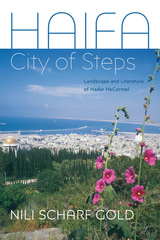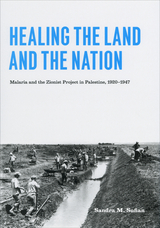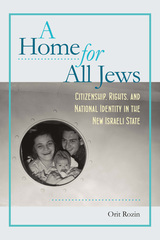120 books about Israel & Palestine and 4
start with H
120 books about Israel & Palestine and 4
120 books about Israel & Palestine
4 start with H start with H
4 start with H start with H

Haifa
City of Steps
Nili Scharf Gold
Brandeis University Press, 2017
Nili Gold, who was born in Haifa to German-speaking parents in 1948, the first year of Israeli statehood, here offers a remarkable homage to her native city during its heyday as an international port and cultural center. Spanning the 1920s and ’30s, when Jews and Arabs lived together amicably and buildings were erected that reflected European, modernist, Jewish, and Arab architectural influences, through 1948, when most Arabs left, and into the ’50s and ’60s burgeoning of the young state of Israel, Gold anchors her personal and family history in five landmark clusters. All in the neighborhood of Hadar HaCarmel, these landmarks define Haifa as a whole. In exquisite detail, Gold describes Memorial Park and its environs, including the border between the largest Jewish and Arab neighborhoods in Haifa; the intersection of Herzl and Balfour Streets, whose highlight is the European/Middle Eastern Technion edifice; Talpiot Market, recalling Haifa as a lively commercial hub; Alliance High School and the Great Synagogue, the former dedicated to instilling a love of intellectual pursuits, while the synagogue was an arm of the dominant Israeli religious establishment; the Ge’ula Elementary School and neighboring buildings that played a historical role, among them, the Struck House, with its Arab-inspired architecture—all against the dramatic backdrop of the mountain, sea, and bay, and their reverberations in memory and literature. Illustrated with more than thirty-five photographs and six maps, Gold’s astute observations of the changing landscape of her childhood and youth highlight literary works that portray deeply held feelings for Haifa, by such canonical Israeli writers as A. B. Yehoshua, Sami Michael, and Dahlia Ravikovitch.
[more]

Healing the Land and the Nation
Malaria and the Zionist Project in Palestine, 1920-1947
Sandra M. Sufian
University of Chicago Press, 2007
A novel inquiry into the sociopolitical dimensions of public medicine, Healing the Land and the Nation traces the relationships between disease, hygiene, politics, geography, and nationalism in British Mandatory Palestine between the world wars. Taking up the case of malaria control in Jewish-held lands, Sandra Sufian illustrates how efforts to thwart the disease were intimately tied to the project of Zionist nation-building, especially the movement’s efforts to repurpose and improve its lands. The project of eradicating malaria also took on a metaphorical dimension—erasing anti-Semitic stereotypes of the “parasitic” Diaspora Jew and creating strong, healthy Jews in Palestine. Sufian shows that, in reclaiming the land and the health of its people in Palestine, Zionists expressed key ideological and political elements of their nation-building project.
Taking its title from a Jewish public health mantra, Healing the Land and the Nation situates antimalarial medicine and politics within larger colonial histories. By analyzing the science alongside the politics of Jewish settlement, Sufian addresses contested questions of social organization and the effects of land reclamation upon the indigenous Palestinian population in a decidedly innovative way. The book will be of great interest to scholars of the Middle East, Jewish studies, and environmental history, as well as to those studying colonialism, nationalism, and public health and medicine.
Taking its title from a Jewish public health mantra, Healing the Land and the Nation situates antimalarial medicine and politics within larger colonial histories. By analyzing the science alongside the politics of Jewish settlement, Sufian addresses contested questions of social organization and the effects of land reclamation upon the indigenous Palestinian population in a decidedly innovative way. The book will be of great interest to scholars of the Middle East, Jewish studies, and environmental history, as well as to those studying colonialism, nationalism, and public health and medicine.
[more]

Holon
A Lower Paleolithic Site in Israel
Michael Chazan
Harvard University Press, 2007
Excavations at the open-air site of Holon, Israel, have provided a unique perspective on hominin behavior, technology, and subsistence strategies in the Middle East at the end of the Lower Paleolithic. This excavation, carried out by Tamar Noy between 1963 and 1970, was one of the first successful salvage projects in the region. This ASPR volume is the first integrated monograph on a Lower Paleolithic site to be published from the region. It brings together the results of interdisciplinary research on the site of Holon—geology, dating, archaeology, paleontology, taphonomy, and spatial analysis—by a team of leading international researchers. The results are synthesized to address fundamental questions of human evolution, including whether early hominins hunted or scavenged very large animals, and the nature of culture change in the Lower Paleolithic. The lithic analysis documents the final stage of the Lower Paleolithic before the transition to Middle Paleolithic technology. This book will be an essential point of reference for students and specialists working in the archaeology of human evolution, as well as all archaeologists working in the region of the Levant.
[more]

A Home for All Jews
Citizenship, Rights, and National Identity in the New Israeli State
Orit Rozin
Brandeis University Press, 2016
Orit Rozin’s inspired scholarship focuses on the construction and negotiation of citizenship in Israel during the state’s first decade. Positioning itself both within and against much of the critical sociological literature on the period, this work reveals the dire historical circumstances, the ideological and bureaucratic pressures, that limited the freedoms of Israeli citizens. At the same time it shows the capacity of the bureaucracy for flexibility and of the populace for protest against measures it found unjust and humiliating. Rozin sets her work within a solid analytical framework, drawing on a variety of historical sources portraying the voices, thoughts, and feelings of Israelis, as well as theoretical literature on the nature of modern citizenship and the relation between citizenship and nationality. She takes on both negative and positive freedoms (freedom from and freedom to) in her analysis of three discrete yet overlapping issues: the right to childhood (and freedom from coerced marriage at a tender age); the right to travel abroad (freedom of movement being a pillar of a liberal society); and the right to speak out—not only to protest without fear of reprisal, but to speak in the expectation of being heeded and recognized. This book will appeal to scholars and students of Israeli history, law, politics, and culture, and to scholars of nation building more generally.
[more]
READERS
Browse our collection.
PUBLISHERS
See BiblioVault's publisher services.
STUDENT SERVICES
Files for college accessibility offices.
UChicago Accessibility Resources
home | accessibility | search | about | contact us
BiblioVault ® 2001 - 2024
The University of Chicago Press









